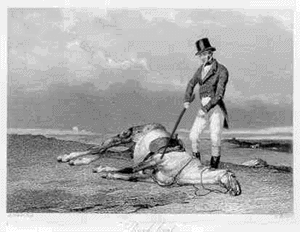Psychoacoustics?
2.108.1.16 |
||
| Posted on November 25, 2016 at 16:05:56 | ||
|
Posts: 15703
Location: Copenhagen Joined: March 21, 2005 |
I had originally thought this was an empirical approach, using human subjects, to determine experimentally what "characteristics" of sound they found enjoyable and then to build these characteristics into loudspeakers. But now, after a very little reading on the subject, it seems that this is another objectivist, measurement-based, approach to jam "linearity" down our throats as "what's best" for everyone. | |
| Thanks for the video and links, posted on December 6, 2016 at 08:13:27 | |
|
Posts: 37607
Joined: May 12, 2000 Contributor Since: April 5, 2002 |
Caleb is pretty impressive. :) |
| Well... Most Audiophiles ARE Psycho-acoustics. nt, posted on December 2, 2016 at 08:23:49 | |
| . | |
| Thanks, posted on November 30, 2016 at 06:34:38 | |
|
Posts: 15703
Location: Copenhagen Joined: March 21, 2005 |
That was my original understanding on the basis of limited reading. |
| RE: Psychoacoustics?, posted on November 26, 2016 at 06:30:20 | |
|
Posts: 15518
Location: Alabama Joined: September 11, 2010 |
Both linearity and imagery are important during the playback process. |
| Goosebump quotient. Thrill of hearing new, better things in a favorite recording... nt, posted on November 28, 2016 at 20:28:16 | |
| . | |
| RE: "The live experience" There is no such thing, posted on November 29, 2016 at 06:17:29 | |
|
Posts: 4306
Location: New Jersey Joined: March 22, 2006 |
as are you. |
| RE: Three dimensional space, posted on December 6, 2016 at 10:02:22 | |
|
Posts: 2527
Location: Front row center Joined: November 30, 2011 |
Not to mention compression and EQ'ing kills any realism ... |
| RE: EQing?, posted on December 31, 2016 at 21:32:21 | |
|
"every microphone ever used to record live music has it's own inherent EQ built in. " 10-4 on that! :) |
|
| "I prefer less realistic more palpable imaging", posted on November 29, 2016 at 15:00:28 | |
|
Posts: 37607
Joined: May 12, 2000 Contributor Since: April 5, 2002 |
That sums it up nicely - to each his own! |
| And yet..., posted on November 29, 2016 at 11:01:43 | |
|
Posts: 37607
Joined: May 12, 2000 Contributor Since: April 5, 2002 |
or heard a bad musician or heard an instrument that was out of tune? there is still a characteristically live component to the sound despite those shortcomings. My wife is a professor at a local college where there are many opportunities to experience live music. Some is quite good - I thoroughly enjoyed a concert by the Katona Twins where I was seated not twenty feet from them. The only reinforcement was a small acoustic shell. Superb. I've also heard a range of student players play there. While the performance ability isn't symphony level quality - the sound experience itself is nevertheless that of live, unamplified music. Talent alone is not a critical factor in perceiving the aspects of the live sound experience one hears. |
| I'm going to end, posted on December 1, 2016 at 16:21:16 | |
|
Posts: 37607
Joined: May 12, 2000 Contributor Since: April 5, 2002 |
participating in your odd diversion of the original topic here. Carry on! |
| I figured as much, posted on December 1, 2016 at 16:36:22 | |
|
Posts: 9933
Joined: January 8, 2002 |
Once you've been called on your BS there is nowhere left to go but through the exit door. |
| Subject was over long ago!, posted on December 3, 2016 at 10:40:54 | |
|
Posts: 37607
Joined: May 12, 2000 Contributor Since: April 5, 2002 |

|
| I enjoy humor!, posted on December 3, 2016 at 11:06:30 | |
|
Posts: 37607
Joined: May 12, 2000 Contributor Since: April 5, 2002 |
"For several days, he is locked in a sweat box with AS." |
| RE: I enjoy humor too. , posted on December 3, 2016 at 12:03:23 | |
|
Posts: 37607
Joined: May 12, 2000 Contributor Since: April 5, 2002 |
so speaking of music and sound quality, what do you prefer? Clearly stated here several days ago. I have also spoken about audio show quality here. I'll be happy to repeat anything else I've posted if necessary. |
| Page: | [ 1 ] [ 2 ] |

